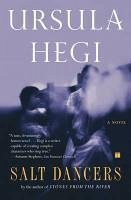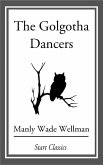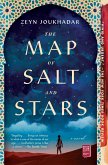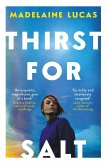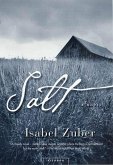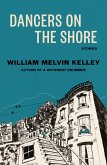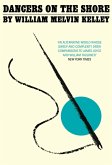Ursula Hegi started to write at age six. After learning to read, she figured that the only thing that could possibly be more exciting than reading would be writing. She wrote stories and poems, feeling always a bit different from other kids since she didn't know anyone else who was writing. As a teenager, she'd walk along the Rhein River, writing what she now laughingly calls "gloomy adolescent poetry." She still has half a novel from those years, handwritten on lined paper. She came to the United States by herself as an eighteen year old.
Hegi saw herself as a "closet writer" until she began to study writing at the University of New Hampshire where she met other writing students, including Alice McDermott, Rebecca Rule, Susan Wheeler, and Barbara Wright, in a very supportive environment. Her first novel, Intrusions, was published while still in graduate school. Since then, Hegi has published a collection of short stories, Unearned Pleasures and Other Stories, as well as three novels, Floating in My Mother's Palm, Stones from the River, and Salt Dancers.
She is currently working on a book of interviews with Germans of her generation, who now live in the United States. She is exploring what they are doing with the silence that was such a numbing presence in their lives when they were young in postwar Germany, where none of the adults talked about the Holocaust. Messengers of Silence is under contract with Simon & Schuster, along with Hegi's next novel. So far, three of her books have explored the complexity and ambiguity of being bicultural.
Hegi usually revises her fiction fifty to a hundred times, going through it again and again, discovering her characters and the meaning of each piece in the process. She listens very closely to the voices of her characters. Hegi used to write fiction and poetry separately, but about twelve years ago, the two of them began to fuse. She now writes fiction with the language of a poet, the voice of a poet.
She usually works on several manuscripts at one time, taking each as far as possible and then letting it breathe, develop, while focusing on another story or book. Writing five or six days a week, for about four to six hours, she honors her writing time the same way she honors her teaching time. Hegi tells her students that if they wait for inspiration to strike them, they'll only write about three times a year. Inspiration, she believes, comes out of the act of writing.
She is the recipient of about thirty grants and awards, including an NEA Fellowship, a PEN/Faulkner nomination for , and five PEN Syndicated Fiction Awards. She has served on the board of the National Book Critics Circle, and has written over a hundred reviews for The New York Times Book Review, Los Angeles Times, The Boston Globe, Newsday, The Washington Post, and others.
Hegi lives in Eastern Washington with her partner, who is an architect.
She is a tenured professor at Eastern Washington University, having taught since 1984 in the M.F.A. program in creative writing. She teaches writing workshops and seminars in contemporary minority fiction. She feels very fortunate to be doing the work she imagined doing as a six year old. "Being a writer," she says, "is the first thing I remember wanting."
Floating in My Mother's Palm
Intrusions
Dieser Download kann aus rechtlichen Gründen nur mit Rechnungsadresse in A, B, BG, CY, CZ, D, DK, EW, E, FIN, F, GR, HR, H, I, LT, L, LR, M, NL, PL, P, R, S, SLO, SK ausgeliefert werden.

